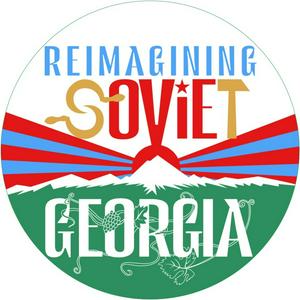Episode 54: The 1936 Stalin Constitution and Participatory Politics in the Soviet Union with Samantha Lomb
On today's episode we explore the ins and outs of the 1936 Soviet Constitution - also known as the "Stalin Constitution" - how it was written, what it guaranteed, what led to its drafting, how it affected life in the USSR as well as the social, political and economic contexts surrounding its drafting. We pay particular attention to how the tensions between central authority in Moscow, regional actors and popular sovereignty created a unique context for the practice and development of Soviet democracy, federalism and constitutionalism, complicating black and white narratives of Soviet political centralization. Our guest is Samantha Lomb - author of Stalin’s ConstitutionSoviet Participatory Politics and the Discussion of the 1936 Draft Constitution - here is a description of the book:"Upon its adoption in December 1936, Soviet leaders hailed the new so-called Stalin Constitution as the most democratic in the world. Scholars have long scoffed at this claim, noting that the mass repression of 1937–1938 that followed rendered it a hollow document. This study does not address these competing claims, but rather focuses on the six-month long popular discussion of the draft Constitution, which preceded its formal adoption in December 1936. Drawing on rich archival sources, this book uses the discussion of the draft 1936 Constitution to examine discourse between the central state leadership and citizens about the new Soviet social contract, which delineated the roles the state and citizens should play in developing socialism. For the central leadership, mobilizing its citizenry in a variety of state building campaigns was the main goal of the discussion of the draft Constitution. However, the goals of the central leadership at times stood in stark contrast with the people’s expressed interpretation of that social contract. Citizens of the USSR focused on securing rights and privileges, often related to improving their daily lives, from the central government."Dr. Lomb works at Vyatka State University in Kirov, Russia. She received her PhD in history from the University of Pittsburgh in 2014. Her first book, Stalin’s Constitution: Soviet Participatory Politics and the Discussion of the 1936 Draft Constitution, was published in 2017. Currently she is working on a book manuscript about collective farm life in the 1930s and a research project on repression. On the topic of collectivization, she has published an article "Moscow is Far Away: Peasant Communal Traditions in the Expulsion of Collective Farm Members in the Vyatka–Kirov Region 1932–1939" in Europe Asia Studies in 2022 and a book chapter called “Nashi/ne Nashi, Individual Smallholders, Social Control, and the State in Ziuzdinskii District, Kirov Region, 1932–9” in Social Control under Stalin and Khrushchev: The Phantom of a Well-Ordered State, edited by Immo Rebitschek and Aaron B. Retish (University of Toronto Press: August 2023). She was also the editor of Win or Else: Soviet Football in Moscow and Beyond, 1921–1985, written by Larry Holmes, published in 2024.
